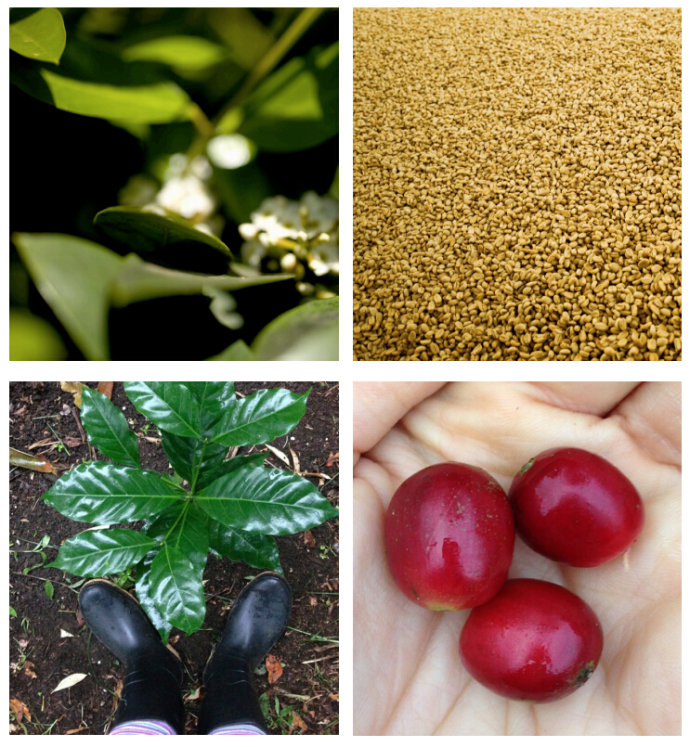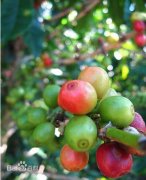Coffee Bean selection course Coffee Bean Brand Type Guide Yega Fischer kochere washing G2
As people's exposure to coffee deepens, ordinary tasting can no longer meet people's needs. As a result, more and more coffee lovers will buy their own beans home, starting with grinding, step by step to blend their favorite coffee flavor. Coffee beans vary in size, old and new quality, how can I choose my favorite and cost-effective coffee beans?
method/step
Size and Taste
There is a difference between the taste of large coffee beans and small coffee beans. For the same kind of coffee, the bigger the beans, the higher the grade, and the smaller the beans, the lower the grade, the cheaper. Of course, there are differences in taste. The bigger the beans, the stronger the coffee taste. However, in addition to high-grade coffee, other coffee classification levels are not very strict, for example, the center grade beans can account for 60%. Then beans one level higher and beans one level lower will both account for 20 percent. Therefore, sometimes roasted according to the labeled center grade standard, another 40 percent of coffee is not roasted under optimal conditions.
Old and new preservation time
Judging the freshness of coffee beans can help judge the freshness of coffee beans. The taste of new coffee beans and old coffee beans of the same variety and the same degree of roasting will be significantly different. Of course, the new beans are more fragrant. The reason is very simple. The freshness of coffee beans will directly affect the roasting and extraction of coffee. Although the new beans will lose a lot of water and turn white after several years of preservation, the aroma will not be greatly affected, so it is more advantageous to choose new beans without knowing the specific production date of coffee beans.
Country: Ethiopia Fiscal year: 2003
Grade: G2
Production area: Yejia Xuefei
Degree of baking: Light baking
Treatment method: washing
Breed: Native species
Flavor: Jasmine, lemon, bergamot, honey, black tea
Kocher is located 25 kilometers southeast of Ethiopia, a small production area, is a rich coffee production area, but also one of the three famous micro-production areas of Yejia Shefi, local residents about 100,000 people, coffee beans as the main source of income, this production area processing equipment is very advanced. Coffee Review rated Kocher's beans 94 points.
There are eight major coffee producing regions in Ethiopia: Nekempte(Lekempti)Gimbi Kimbi, Limu Limu, Illubabor Ibedo, Djimma, Harrar Harrar, Teppi/Bebeka, Sidamo Sidamo, Yirgacheffe is located in Sidama administrative region of Ethiopia in Africa, and Yirgacheffe belongs to a smaller area within Sidama.
Yerga Sherphine itself is a small town with a population of about 20,000. The three neighboring small producing areas Wenago, Kochere and Gelena Abaya are also classified as Yerga Sherphine because the flavor of coffee produced is almost identical to Yerga Sherphine. Yerga Coffee is culturally and geographically similar to its neighbors, but Yerga Coffee seems to be blessed with exceptional conditions. Top quality Yerga Coffee has floral, bright citrus fruit, lemon notes and silky soft taste.
Kochere Kochere is located in south-west Ethiopia, about 25 miles north of the famous town of Yegachefi, and its production model is based on local smallholder farmers sending batches of output to cooperatives for centralized processing. Chalalacktu village has about 100,000 people who depend on coffee for their livelihood, and related production activities have become their main source of income. Due to the income from coffee production, the local living standard is much better than that of many Ethiopian villages, and there are complete health facilities, higher schools, etc. Advanced processing equipment allows Kochere coffee to perform at a high level in the washed field, with molasses and citrus complex tones clean and sweet.

Important Notice :
前街咖啡 FrontStreet Coffee has moved to new addredd:
FrontStreet Coffee Address: 315,Donghua East Road,GuangZhou
Tel:020 38364473
- Prev

Coffee Bean selection course Coffee Bean Brand Guide Coffee Bean Brand Guide Ethiopia Sidamo Solar treatment Lion
With the deepening of people's contact with coffee, ordinary taste can no longer meet people's needs. As a result, more and more coffee lovers will buy their own beans and go home from the beginning of grinding, blending their favorite coffee flavor step by step. The size of coffee beans
- Next

Cuban coffee flavor producing area single coffee coffee price coffee network
According to records, there were 2067 coffee plantations in Cuba in 1833. Among them, the earliest seven coffee plantation sites, such as Raglan Piedra, Elkovre, El Salvador and Nisto Perez, are listed as World Cultural Heritage. These seven coffee plantations are located in the foothills of Maestra in the provinces of Santiago and Guantanamo in southeastern Cuba in the 19th century (figure 17 is a postcard).
Related
- Detailed explanation of Jadeite planting Land in Panamanian Jadeite Manor introduction to the grading system of Jadeite competitive bidding, Red bid, Green bid and Rose Summer
- Story of Coffee planting in Brenka region of Costa Rica Stonehenge Manor anaerobic heavy honey treatment of flavor mouth
- What's on the barrel of Blue Mountain Coffee beans?
- Can American coffee also pull flowers? How to use hot American style to pull out a good-looking pattern?
- Can you make a cold extract with coffee beans? What is the right proportion for cold-extracted coffee formula?
- Indonesian PWN Gold Mandrine Coffee Origin Features Flavor How to Chong? Mandolin coffee is American.
- A brief introduction to the flavor characteristics of Brazilian yellow bourbon coffee beans
- What is the effect of different water quality on the flavor of cold-extracted coffee? What kind of water is best for brewing coffee?
- Why do you think of Rose Summer whenever you mention Panamanian coffee?
- Introduction to the characteristics of authentic blue mountain coffee bean producing areas? What is the CIB Coffee Authority in Jamaica?

